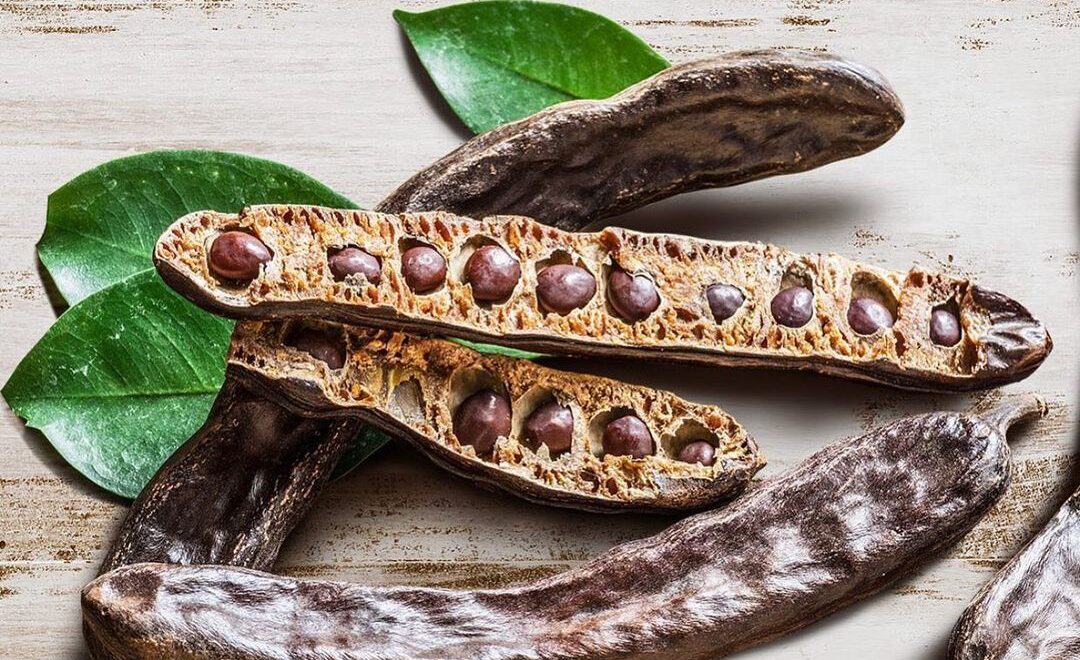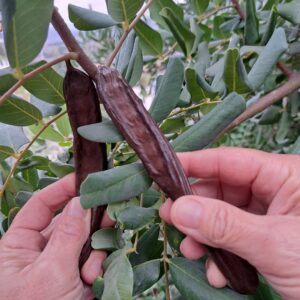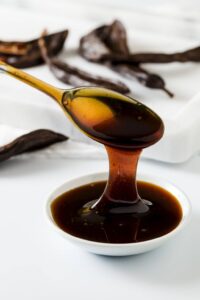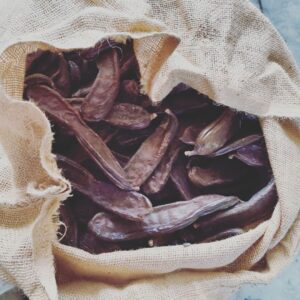
The carob tree is a Maltese indigenous tree and a member of the legume family which grows in Mediterranean areas. It is known to live for more than a thousand years. It is a large tree and grows up to 15m but produces no fruit for the first 15 years of its life. This tree produces carob pods which start developing on the tree in November and take till August to mature. Developing carob pods have the appearance of green broad beans but they turn a dark glossy brown when ripe.

Carob vs Cacao
Carob comes from the pods of a Mediterranean tree, while cacao beans come from a tree native to Central and South America. Carob is made from roasting and grinding the edible pulp from inside the pods. Cacao beans are fermented, ground into a paste, and used to create chocolate. Carob is naturally sweet, whereas sweeteners are added to cacao as it’s quite bitter in its natural form. Additionally, caffeine and theobromine, stimulants found in chocolate, are absent from carob.

The Carob extract is an excellent natural sweetener that can replace sugar in confectionery and bakery preparations. It is perfect as a flavouring and sweetener in smoothies and beverages, teas and herbal teas.
The extract is obtained by macerating the Carob pods in water for at least 48 hours then boiled twice until it becomes thick and brown in colour. In the end filtered to remove any excess. The carob extract is organic without added sugar, lactose and gluten. Carob extract is also recommended as a natural remedy for cough relief, thanks to the expectorant power of carob.
Health Benefits
Carob is considered as the next superfood, hence it contains a lot of health benefits such as;
Digestive Health – The carob pods are rich in insoluble fibre, a type of fibre that is not broken down by the gut and absorbed into the bloodstream. It adds bulk to waste in the digestive system which helps in preventing constipation.
Weight Loss – In the study, researchers analysed 20 healthy subjects aged 22 to 62 by feeding them Carob fibre before a meal. The fibre content in Carob was shown to decrease the production of ghrelin, which provided greater satiety in the subjects during a meal, which in turn prevented overeating.

Blood Sugar / Diabetes – Although Carob is naturally sweet, it doesn’t spike the blood sugar in the same way as chocolate. Carob has a very low glycaemic index (GI), making it a great alternative to chocolate for diabetics.
A study conducted in 2017, finds that the fibre content of Carob can help to control blood sugar. The results showed that the participants who ate the Carob had a lower glycaemic response to their lunch meals, as the carob snack had a stabilising effect on their blood sugar levels.
 It-Tokk, Independence Square, Victoria, Gozo | Ta’ Dbiegi Crafts Village, Gharb, Gozo
It-Tokk, Independence Square, Victoria, Gozo | Ta’ Dbiegi Crafts Village, Gharb, Gozo





0 comments
Write a comment